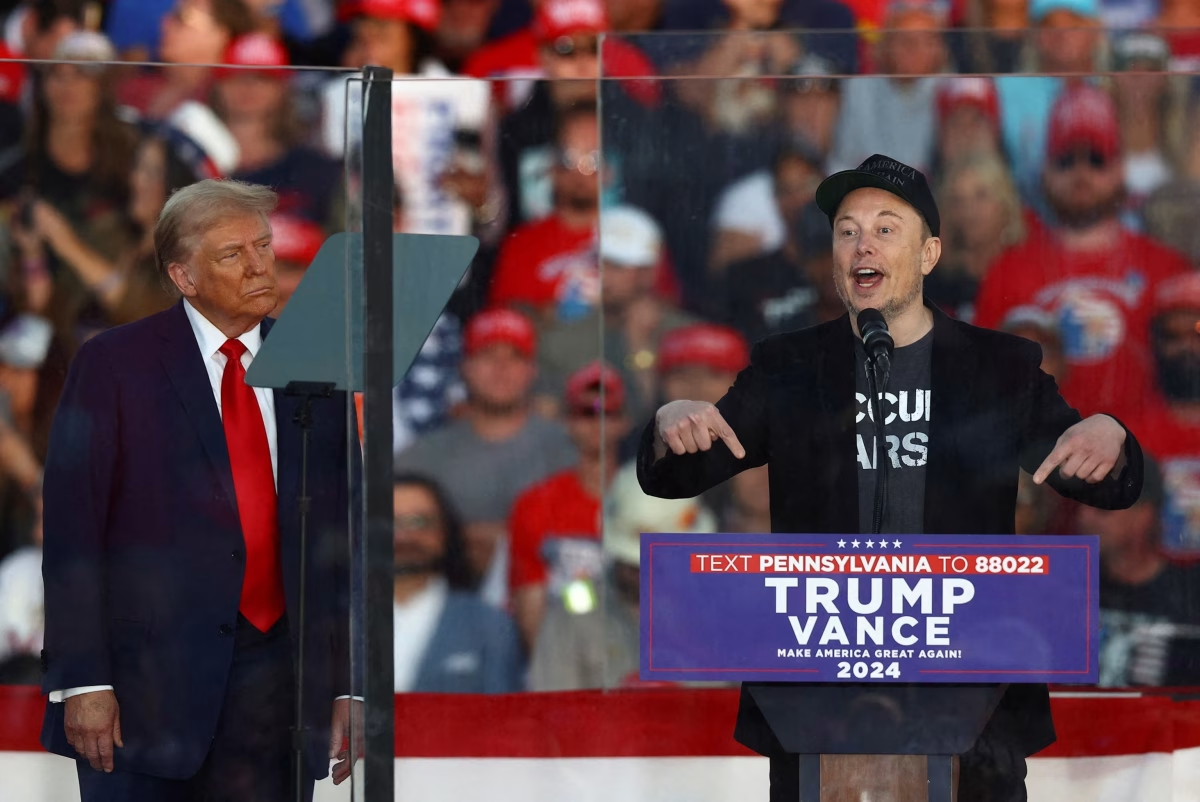In recent months, the growing alliance between Donald Trump and Elon Musk has raised serious concerns about what their partnership could mean for American democracy. With Trump vying for a second term in office and Musk, a tech billionaire, aligning himself more closely with Trump’s campaign and potential administration, there are real implications for our political system if Trump secures a second presidency in the upcoming election.
Unsurprisingly, Musk has already sparked controversy, offering $1 million a day to individuals who support his petition backing the Constitution. The issue? In order to register for this “million dollar a day,” you must be registered to vote. According to legal scholars like Micheal Kang and Rick Hasen, requiring the payments to be made on the condition of registration violates ethical lines and possibly federal law. Kang explained, “It’s not quite the same as paying someone to vote, but you’re getting close enough that we worry about its legality.” Musk’s direct attempts to leverage his billionaire status to politically influence voters set a troubling tone should he gain more political power under a second Trump administration.
Trump’s endorsement of Musk for a future role in his administration has also raised eyebrows. He praised Musk as a “cost-cutter” who would do the job “effectively and responsibly.” This prospect of involving Musk raises concerns over his potential to influence corporate tax policies, the same ones that directly impact his own companies, Tesla and X (formerly Twitter). Should this happen, the consequence could include massive tax breaks for corporate giants, especially those affiliated with Musk. These potential conflicts of interest contrast starkly with our democratic principles and would enable billionaires to sway policy in favor of their interests.
Not only are both Trump’s and Musk’s priorities completely skewed, but their lack of economic understanding could prove incredibly costly for the American people. Musk recently boasted about how, if he was appointed, he could cut about $2 trillion in federal spending. This kind of commentary only highlights Musk’s glaring lack of knowledge of government finances and spending–an ignorance that would have devastating implications for American taxpayers. It suggests that Musk views government spending as merely a budget that needs to be maximized, with no understanding of the services essential to millions of Americans that would be financially stripped from citizens. Cutting $2 million in government spending would drain funding for essential programs like Social Security, Medicare and public education, which millions of Americans are reliant on. Musk’s frankly obnoxious attitude toward government spending exemplifies a lack of awareness of the complexities of economic policy and the consequences cutting that funding would have on every other aspect of the economy with Americans footing the bill.
This alignment poses a severe threat by prioritizing corporate profit and interest over the needs of the average American. Our democratic foundation is built on a system of laws that are supposed to serve the people, not funnel money directly into the hands of the 1%. With this partnership, there’s a real risk that policies may be established that benefit their interests over day-to-day Americans. Both Trump and Musk have records that reflect their inability to understand, represent and adequately serve the average American citizen. They are both deeply disconnected from the realities of typical Americans’ daily lives, demonstrated clearly by their priorities. One has to question whether either of them has the ability to prioritize issues that actually matter and impact average Americans.
We must ask ourselves: Can we afford to let billionaires, with no economic understanding and little regard for ethical and legal standards, determine tax and public policies? Trump’s willingness to favor wealthy alliances, coupled with Musk’s apparent readiness to skirt the law, paints a troubling picture where democracy is up for sale to the highest bidder.
This scenario is no longer hypothetical. Trump’s open support for Musk and repeated hints at giving him a position of power demonstrate a grave lack of commitment to democracy. Rather than seeking appointees focused on the interests of the American public, Trump seems determined to appoint people who share his tendency to disregard ethical standards and norms. Trump appears ready and willing to give power to those who prioritize profit over principles. This partnership doesn’t only challenge our democratic norms; it risks establishing an administration that would, once again, place corporate profits over the well-being of the American people.







